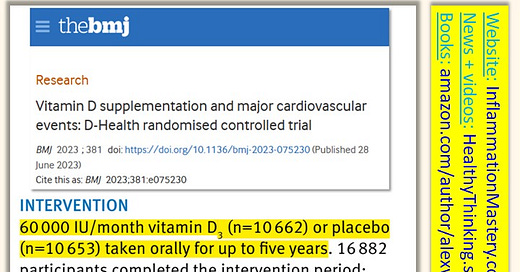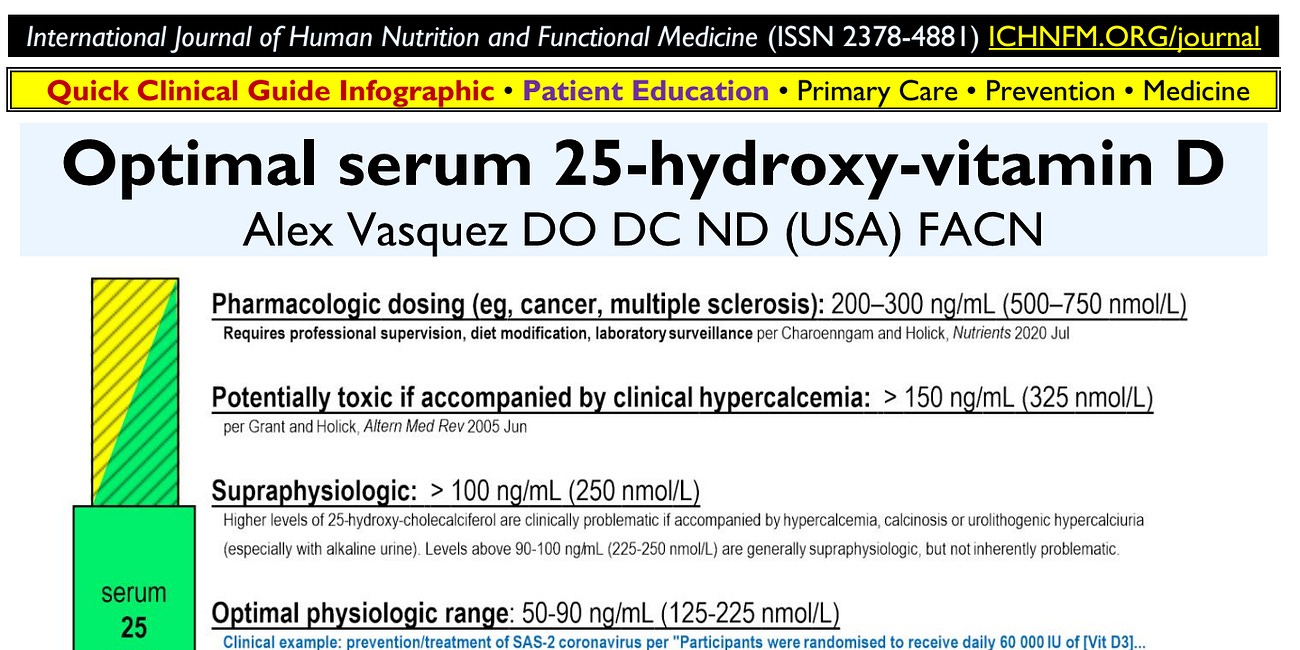BMJ clearly knows that it is publishing bogus research to slander vitamin D
BMJ published a 5-year study using 2,000 IU/day of vitamin D3 which is known to be one-half or 1/5 the required dose for adults, then they concluded that the cardiovascular protection was lackluster
Plain text:
British Medical Journal (BMJ) consistently publishes the lowest quality of garbage research when doing so is pleasing to their drug advertisers, ie, bogus research designed to make drugs look great and nutrition look weak—specifically BMJ’s publications on vitamin D are consistently incompetent and unworthy of publication. In their most recent mistake, BMJ published a 5-year study of using 2,000 IU per day of vitamin D3 which is known to be one-half or 1/5 the required dose for adults, then they concluded that the cardiovascular protection was lackluster. This is an example of the inherent—”built-in”—bias in medical publications whereby incompetence is allowed when it serves the medical ego and drug sales; performing a clinical trial with drugs but inexcusably using half of the effective dose would never be allowed, as it would be both incompetent and unethical. I personally published guidelines for the clinical and research use of vitamin D in 2004 in my major “vitamin D paradigm shift” article and was invited by the editor of the BMJ to publish a short summary of this article in 2005; therefore, the BMJ clearly knows that it is publishing bogus research to slander vitamin D. Dr Alex Vasquez HealthyThinking.substack.com Saturday, July 1, 2023
Vitamin D GOLDMINE: 3 PDFs + 7 hours in 8 Videos
Now that you are an expert on the anti-inflammatory, antiviral, psychiatric, and metabolic use of NAC-acetylcysteine, now you can extend your expertise to vitamin D. Here are my most important articles on vitamin D compiled into a single PDF (provided below)…





